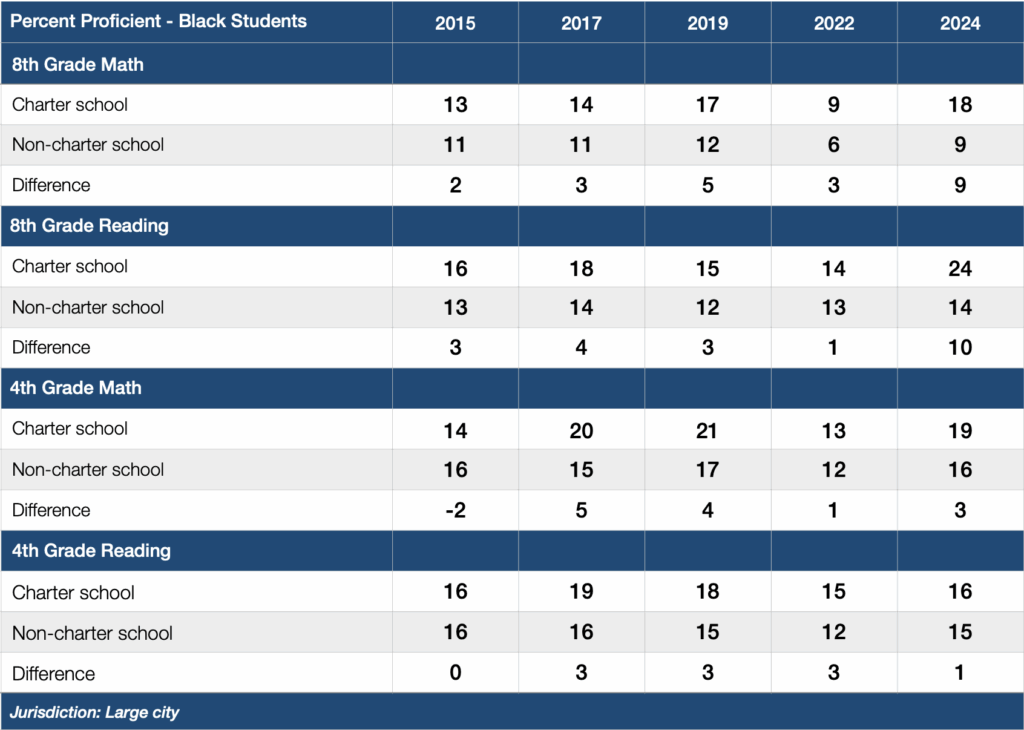The last couple of weeks have been significant for school choice advocates. Late Sunday, the House Budget Committee passed the larger Republican tax bill, including a measure to create the first of its kind nationwide tax credit scholarship program for private school choice. Last week was also National Charter Schools Week, which the White House with a a Presidential Message praising charter school students for “outperforming their peers in math and reading” and noting charter schools’ particularly positive impacts for low-income and urban students.
Given the warranted concerns about student outcomes and our sustained low levels of overall achievement, it is good to see this focus on student achievement in math and reading. Data from the Nation’s Report Card suggests that charter schools are in fact having a positive impact on many students.
Looking specifically at black eighth graders in large cities in the last ten years, students at charter schools have consistently had higher shares considered proficient than in non-charter schools. (For this analysis, we looked only at the “large city” jurisdiction, often used as a benchmark for urban districts.) In 2024, there was a 9-point gap in proficiency in favor of charter schools for math, and a 10-point gap for reading. For black students in large cities in fourth grade, the shares proficient in charter schools have also been higher than the shares proficient in non-charter schools. This is true for both math and reading.

It is true that, across both charter and non-charter schools, the share of students considered proficient is still low. Compared to other student groups, major achievement gaps remain. But it is still the case that charters have been having a measurably positive impact on student performance.







